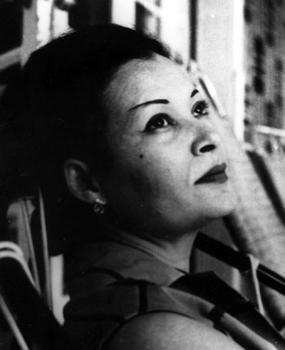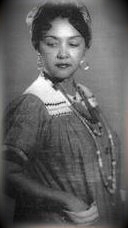
Port-au-Prince is the capital and most populous city of Haiti. The city's population was estimated at 1,200,000 in 2022 with the metropolitan area estimated at a population of 2,618,894. The metropolitan area is defined by the IHSI as including the communes of Port-au-Prince, Delmas, Cite Soleil, Tabarre, Carrefour, and Pétion-Ville.

Cap-Haïtien, typically spelled Cape Haitien in English and often locally referred to as Le Cap, Okap or Au Cap, is a commune of about 274,000 people on the north coast of Haiti and capital of the department of Nord. Previously named Cap‑Français and Cap‑Henri during the rule of Henri I, it was historically nicknamed the Paris of the Antilles, because of its wealth and sophistication, expressed through its architecture and artistic life. It was an important city during the colonial period, serving as the capital of the French Colony of Saint-Domingue from the city's formal foundation in 1711 until 1770 when the capital was moved to Port-au-Prince. After the Haitian Revolution, it became the capital of the Kingdom of Haiti under King Henri I until 1820.
The Haiti national football team represents Haiti in international football. Haiti is administered by the Fédération Haïtienne de Football (FHF), the governing body for football in Haiti. They have been a member of FIFA since 1934, a member of CONCACAF since 1961 and a member of the Caribbean Football Union (CFU) since 1978. Haiti's home ground is Stade Sylvio Cator in Port-au-Prince and the team's manager is Gabriel Calderón Pellegrino.
Le Nouvelliste is the name of:

The Catholic Church in Haiti is part of the worldwide Catholic Church, under the spiritual leadership of the pope, the Curia in Rome and the Conference of Haitian Bishops.

Oswald Durand was a Haitian poet and politician, said to be "to Haiti what Shakespeare is to England, and Dante to Italy." He was also a Haitian writer and poet of French and Creole expression, considered as the national poet of Haiti. Besides he was also judged as a Romantic poet and the most prolific one in the nineteen centuries. These 20th-century successors such as René Depestre, and Jacques Roumain congratulated Oswald Durand for his authentic expressions and honored him as a forerunner of Haitian indigenism. He was born in the northern part of Haiti, in the city of Saint-Louis du Nord. In 1842, both his parents died in the earthquake that devastated the city of Cape Haitian. Oswald Durand, and his sister, were welcomed in their maternal grandmother who raised them. He spent most of his childhood outside the city where he was born. Because of political instabilities in Haiti, he was forced to leave school and to educate himself without having recourse to a teacher.

Marie Vieux-Chauvet, was a Haitian novelist, poet and playwright. Born and educated in Port-au-Prince, she is most famous for the novels Fille d'Haïti (1954), La Danse sur le volcan (1957), Fonds des nègres (1960), and Amour, colère et folie (1968). During her lifetime, she published under the name Marie Chauvet.
As in many developing countries, radio reaches the widest audience in Haiti. Estimates vary, but more than 300 radio stations are believed to broadcast throughout the country. Talk show programs serve as one of the few ways in which ordinary Haitians can speak out about politics and the government. A law passed in 1997 declares the airwaves to be the property of the government, but at least 133 unlicensed radio stations operate freely. In addition, there are 50 community-based stations throughout the country.

Damage to infrastructure in the 2010 Haiti earthquake was extensive and affected areas included Port-au-Prince, Petit-Goâve, Léogâne, Jacmel and other settlements in southwestern Haiti. In February Prime Minister Jean-Max Bellerive estimated that 250,000 residences and 30,000 commercial buildings had collapsed or were severely damaged. The deputy mayor of Léogâne, which was at the epicenter of the earthquake, reported that 90% percent of the buildings in that city had been destroyed and Léogâne had "to be totally rebuilt." Many notable landmark buildings were significantly damaged or destroyed, including the Presidential Palace, the National Assembly building, the Port-au-Prince Cathedral, and the main jail. The Ministry of Education estimated that half the nation's 15,000 primary schools and 1,500 secondary schools were severely damaged, cracked or destroyed. In addition, the three main universities in Port-au-Prince were also severely damaged. Other affected infrastructure included telephone networks, radio station, factories, and museums. Poor infrastructure before the earthquake only made the aftermath worse. It would take half a day to make a trip of a few miles. The roads would also crisscross haphazardly due to disorganized construction.
Lucienne Heurtelou was a Haitian diplomat, women's rights advocate, and author. She was the First Lady of Haiti from 1946 to 1950 as the wife of Haitian President Dumarsais Estimé.
Désastre is an artwork of Haitian artist Frankétienne. This acrylic on canvas was painted between 15 and 16 January 2010, the same week the 2010 earthquake hit Port-au-Prince, Haiti's capital city. The artwork represents the victims below the city's wreckage.

Emmelie Prophète, also known as Emmelie Prophète Milcé, is a Haitian writer and diplomat. As of November 2022, she is serving as justice minister of Haiti.
Radio Lumière is an Evangelical Christian radio network in Haiti. The headquarters is located in Port-au-Prince.

Lina Mathon-Blanchet was a Haitian pianist, music teacher and composer. First director of the Conservatoire National, she was interested in Haiti's folkloric traditions and was one of the first performers to include Vodou-influenced theatrical performances on the public stage in the country. Founding several folkloric troupes, she led her artists on tours throughout the United States and was noted as a teacher and mentor to many prominent Haitian performers. Trained in classical music traditions she collected traditional songs documenting the lyrics, melodies, and rhythms found as traditional themes in Haitian music. She is widely recognized as one of the most influential figures in the development of music in Haiti in the twentieth-century.

Protests began in cities throughout Haiti on 7 July 2018 in response to increased fuel prices. Over time, these protests evolved into demands for the resignation of Jovenel Moïse, the then-president of Haiti. Led by opposition politician Jean-Charles Moïse, protesters stated that their goals were to create a transitional government, provide social programs, and prosecute allegedly corrupt officials. From 2019 to 2021, there were massive protests calling for the Jovenel Moïse government to resign. Moïse had come in first in the 2016 presidential election, for which voter turnout was 21%. The 2015 elections had been annulled due to fraud. On 7 February 2021, supporters of the opposition allegedly attempted a coup d'état, leading to 23 arrests, as well as clashes between protestors and police.

Jean-Michel Lapin is a Haitian politician who served as acting Prime Minister of Haiti from 2019 to 2020.
Eugène Francois Magloire was a high-ranking general of the Haitian army.
Events in the year 2023 in Haiti. Haiti still had no president, no parliamentary quorum, and a dysfunctional high court due to a lack of judges, with another news report of violent uprisings across the country, realizing they were sent by the gangs while the other families and neighbors escape from a burning capital Port-au-Prince. The government invoked a martial law across Haiti in an effort to contain gang violence. The police and the military are forced to withdraw from their posts when their bases and police stations throughout Haiti are destroyed by more gangs who had also planted weapons in the area to provoke participation. Haiti is effectively destroyed by violence that no longer controls the island country after its long history of natural disasters and political chaos, more than three million Haitian migrants sailed to Florida in the U.S. as refugees, and black civilians in Haiti are rallying to fight back against gang corruption.
Between January 10 and 26, 2023, eighteen police officers were killed by Gan Grif, a gang operating in Port-au-Prince. The killings sparked riots in Port-au-Prince by Haitian police officers and police-affiliated gang Fantom 509, along with international condemnation.











